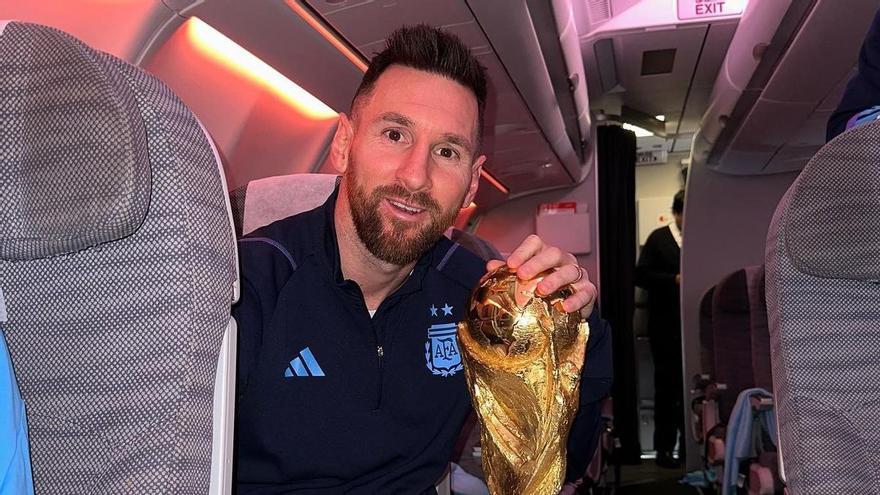The Messiah arrives home. Messi arrives, at last, with a clear conscience, reassured with himself and at the same time reconciled with his country, the same country that had denied him for years and years of frustrations. He arrives with the Cup (“look how beautiful she is,” he said as soon as he met her in Doha, cradling her in his arms) transformed into much more than a footballer.
He is even a symbol of popular culture, capable of bringing social cohesion to an Argentina in crisis, with runaway inflation and steeped in endless political problems, to which Leo (Lio as he is called at home) has patched up with his goals (seven in the World Cup) and with a leadership that has given him back his status as a native of Rosario, which he never abandoned despite the fact that he has spent more time in Barcelona than in his birthplace. He has risen above the rest. And above time.
The Messiah is already one of the magnificent five, the undisputed best player in the world on the contemporary stage, with a dream career (nothing remains for him to win both at Barça and in the national team), which withstands any comparison to the four who were in that pantheon before. He broke all records at the Camp Nou. He now shatters those of the Albiceleste (top Argentine scorer of all time ahead of Carlos Bianchi, in World Cups surpassing Batitusta, with more matches with the national team leaving behind Daniel Passarella…)
Leo Messi now resides in the same pantheon as Di Stéfano, Pelé, Cruyff and Maradona…
For the full article, please visit Diario de Ibiza website here.


